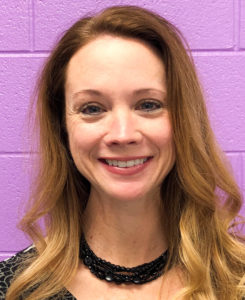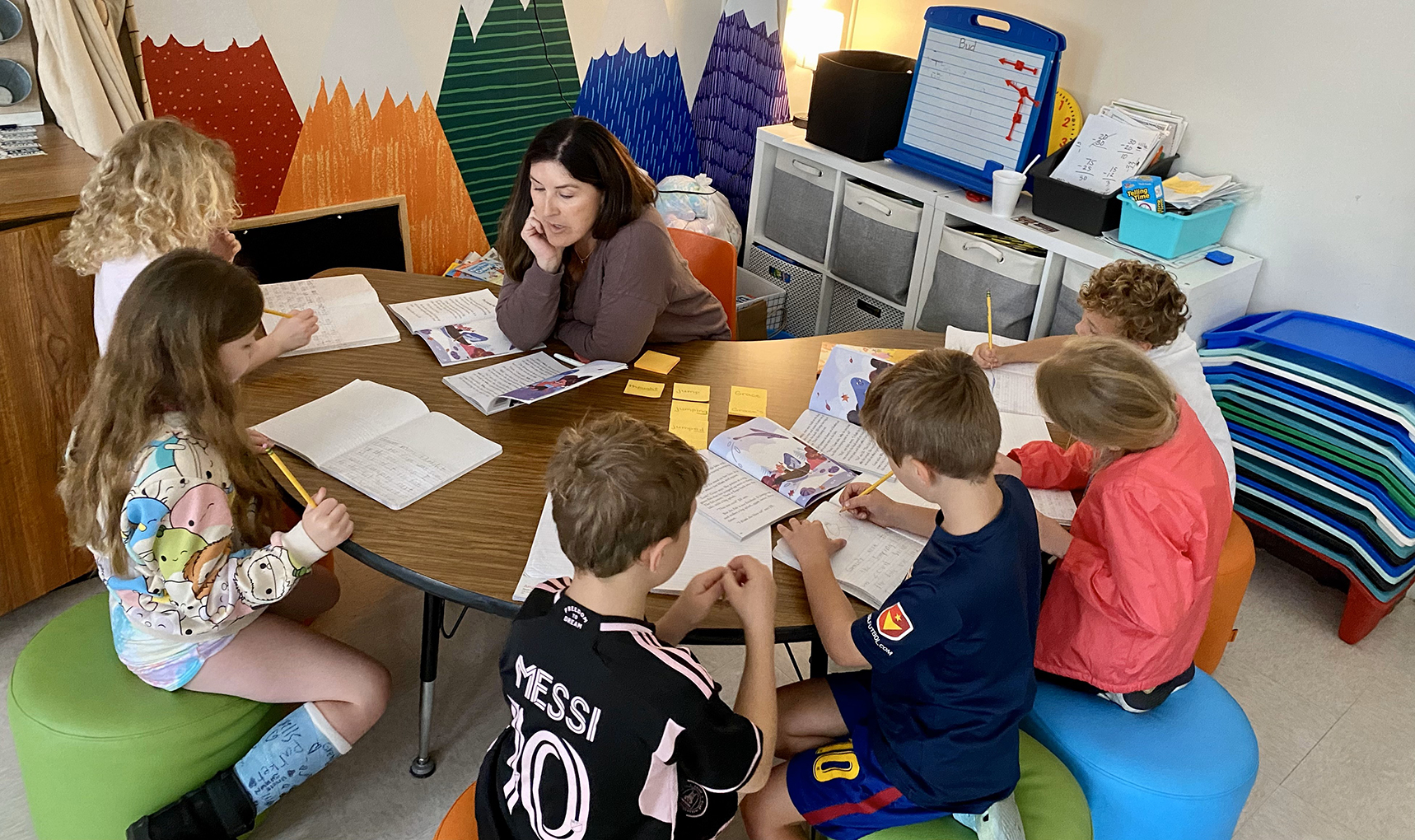
Jennifer Wilcox
By Jennifer Wilcox
Jennifer.Wilcox@hardin.kyschools.us
It’s never too early to start children on their paths to reading success.
Those words mean even more to me since the birth of my first grandchild. Although he is only 3 months old, he has been exposed to a plethora of books. He is hearing the many phonemes of our language and is creating the neurological pathways needed to attach meaning to those sounds. He watches the way that my mouth moves to produce those sounds and tries to imitate what I am doing while playing with his own voice. He reacts to characters on a page by differentiating his level of engagement and excitement.
This is the beginning of his understanding that books are important and that language is used to communicate ideas and stories. He is learning that language is made up of words and that words are made up of individual sounds.
Parents can play a huge role in the early development of reading skills in children. More specifically, parents can help their children develop phonological awareness skills. Phonological awareness refers to the ability to hear and manipulate individual words and sounds in spoken language. It is the awareness that our spoken language is made up of words and that words are made up of rhymes, syllables and sounds.
The key words in the definition are spoken language. No materials are required, not even books. Regardless of income or level of education, all parents can enhance phonological awareness development in their children, especially when given ideas on how to embed skill development into everyday activities.
It is critical that the parents of young children understand the necessity of developing their child’s phonological awareness skills. By the end of kindergarten, phonological awareness skills are a major predictor of later reading success. Furthermore, the neurological pathways that are created by hearing sounds over and over again helps children bridge the gap from spoken language to visual representations of sounds easier and quicker.
If phonological awareness skills are so important to reading development, then what are some ways educators can enhance parental involvement in the development of these skills? Here are some ideas:
At-home challenges
Challenge families to complete an at-home activity targeting specific phonological awareness skills. Preschool, kindergarten and 1st-grade teachers can send home a letter explaining the challenge along with any materials they will need. Games are an excellent way to practice a skill at home because they are simple and fun.
In my role as a Read to Achieve teacher, I have created a series of phonological awareness games that can be used at the different grade levels and that vary based on levels of skill complexity. Teachers can select the activities based upon the needs of each child. The games also give parents ideas on how to extend learning beyond the game and into everyday activities.
Depending on the materials available, one or several students can complete the challenge each night. To show their participation, parents can take a picture of their family playing the game and share it with the teacher or school via email or social media. To add to the fun, each school can create a hashtag, like #PAFUN@home, that can be used when sharing on social media.
If parents are unable to share a picture, you can include a form for them to sign indicating they completed the activity. Participation displays or graphs can be kept inside or outside of the classroom to motivate all students to do their part in reaching the goal of 100 percent participation.
The phonological awareness at-home challenge also can be a part of a greater schoolwide reading challenge by having the older students complete at-home challenges focusing on fluency or comprehension skills.
Open houses
Open house events are a great way to interact with many families at once. Preschool and early elementary school teachers can prepare information on phonological awareness skills to share and/or model with parent groups.
With phonological awareness skills, parents often need to only be shown how simple they are to incorporate into everyday life by simply talking with their children. Showing a parent how to do something is so much more powerful that trying to explain it in writing.
Cradle school programs
Teaching families about phonological awareness skills before their children reach preschool age can be accomplished through cradle school programs. Cradle school programs are available for parents and their children birth to school-age. The programs are usually hosted at local schools.
Along with their children, groups of parents meet together to discuss ways to enhance the development of their children at home. By meeting with them to provide simple ideas on how to work on phonological awareness skills with their children at home, educators are improving the chances that these children will be ready for reading skills when they enter school.
Family resource centers
Family resource centers are another great way to reach families, especially those in the greatest of need. Coordinators provide direct communication with and help to many families requiring assistance meeting their everyday needs, while also hosting schoolwide events for all families.
Getting information and resources – such as phonological awareness games and flyers with helpful tips on how to build phonological awareness skills at home – into the hands of family resource center coordinators to distribute to families can help increase the chances of early reading skills development in children.
Other home-based programs
Whether it’s funded by United Way, local health departments or as part of an early intervention system, there are home-based programs that allow trained professionals to enter homes and provide services to families. You can find out what programs are sponsored by United Way in your area by going to www.uwky.org. To find out more information on the early intervention program in your area, go to Kentucky Cabinet for Health and Family Services website. Getting materials about phonological awareness skills into the hands of the trained professionals going into homes is another way to reach families with children at an even earlier age.
Teachers need parental support and involvement, especially in areas that can be as difficult as learning to read. Striving to provide families with phonological awareness resources and tips on how to use the resources as early as possible can only help to strengthen the partnership needed while enhancing early reading skills in our future students.
MORE INFO …
The phonological awareness games mentioned in the article can be obtained from me for free by emailing me at Jennifer.Wilcox@hardin.kyschools.us.
For additional information on specific phonological awareness skills and level of complexity, check out the Read Naturally website.



Great article and wonderful ideas & activities!!